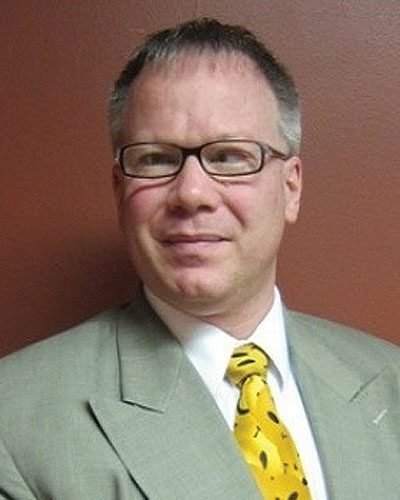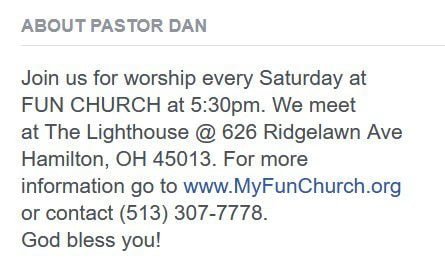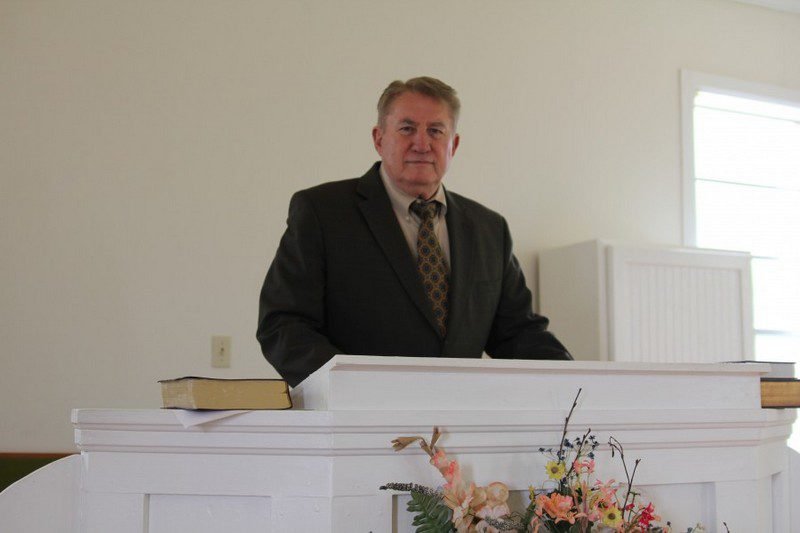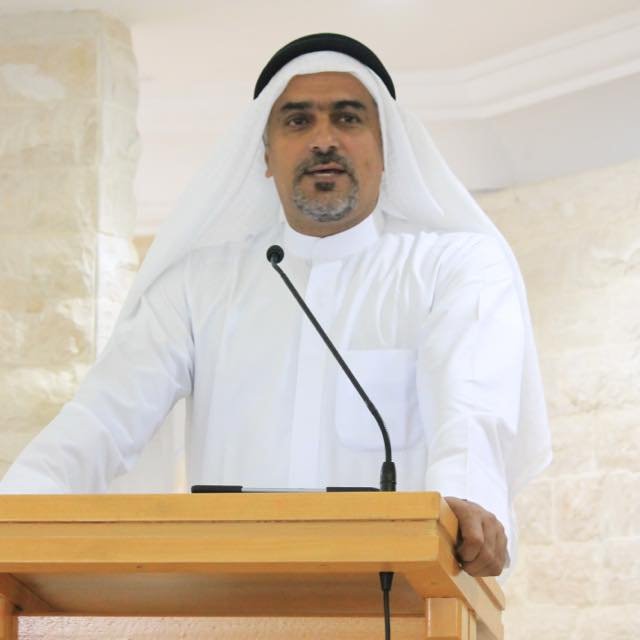
Warning! Truckloads of snark ahead — a few swear words too. You have been warned!
What follows is a comment I received on the Why I Hate Jesus post from an Evangelical Christian named Wade. My response is indented and italicized. Enjoy!
Bruce, I really feel sorry for you.
Why? You don’t know me, and you didn’t make any real effort to learn more about me either. Much like thousands of Evangelicals who have come before you, you read a few posts and then rendered judgment. You might want to ponder the words of your God found in Proverbs 18:13: He that answereth a matter before he heareth it, it is folly and shame unto him.
My wife recently spent eighteen days in the hospital. She underwent major abdominal and bladder surgery. She currently has a colostomy bag and will be off work two more weeks. Now, if you had expressed your sorrow over my wife’s plight, that I would understand. However, your false sorrow is directed towards me all because of what you read in the post Why I Hate Jesus. As countless Evangelicals before you have done, you totally missed the point of the post. Go back and read it again and see if you can “discern” what it is I am writing about.
Because of your own weaknesses and failures in your own life and being let down by HUMANS you are spreading a message of HATE and atheism.
Exactly, what are my weaknesses and failures, Wade? Please list them. Not the preconceived ones you have conjured up in your mind, I want you to list my real weaknesses and failures. And believe me, I am a weak man who has failed many, many times. I am also a man who is quite honest in his blog posts. I have written thousands of posts over the past decade. I have told my story — and continue to do so — in painstaking detail.
As far as being let down by humans, I have no idea what you are talking about. Sure, I have been disappointed by the actions and words of more than a few humans. None of us is perfect. I am sure I have disappointed many people. All any of us can do is be honest, and when failings are brought to our attention, try to do better. As a humanist, that’s always my goal — to be a better person today than I was yesterday.
What is the message of HATE I am spreading? Again, something tells me that you don’t grasp the point of the Why I Hate Jesus post. As far as spreading atheism, what else would you have me do? I am, after all, an atheist. I assume you are okay with Christians taking the gospel to every creature. Isn’t that what you are trying to do here? Put in a good word for Jesus? All of us talk about what we think, know, and believe. If that offends you in some way, tough shit. Don’t read my writing if it causes you to get a Jesus boner.
Blaming God and Jesus for human faults and failures.
Umm, I don’t believe in the existence of God and I am quite sure that Jesus is dead, never to be seen again. So, it is beyond silly to suggest that I blame God for anything. Again, you have made no effort to understand me as a person or a writer, so you have grossly and ignorantly misjudged my motivations.
Obviously, you don’t really understand the Bible, or Jesus or God.
How about you give me a Bible test. I bet I can answer virtually every question on the test. I actually know the Bible quite well. I was in the Christian church for fifty years. I pastored Evangelical churches in Ohio, Texas, and Michigan for twenty-five years. I spent thousands and thousands of hours reading and studying the Bible and devouring theological tomes. I think you will find, if we both whip out our Bible dicks, that I am a John Holmes of knowledge and you, my friend are Mr. Mushroom, 2 Corinthians Donald Trump.
And obviously you can’t distinguish between God and Man, so you give up because of men’s failures, and become a hater of Jesus and an atheist. WHAT A SAD THING.
I know the difference between human beings and God. I see human beings everywhere I look. My wife of forty-one years, six children, and twelve grandchildren are all veritable humans. The same can be said about my relatives, neighbors, friends, and readers of this blog. Humans, the lot of them.
God? He/she/it is a construct of the human imagination. He is a mythical being that no one has ever seen, heard, or spoken to. I find it quite easy, then, to distinguish between reality and myth. How about you, Wade? Do you go around talking to a deity you have never seen; a myth who only exists in your head? Now, that’s s-a-d.
Let me say, again, Jesus was born, lived, and died — end of story. Dead people don’t come back to life. If you have EVIDENCE to the contrary, I would love to see it. Not really, because you have no such evidence. You believe a mythical story in an ancient religious text — that’s your evidence. Sorry, but I am not buying it. Seeing is believing, Wade, so present a living Jesus to me and I will believe.
I know you won’t like this, but I see you in the picture and I see sadness for a man who tries to get his attention and respect and love from other haters of God and Jesus.
Dude, get over the sad/sadness bullshit. I get it, you are sad that I am sad. I get it, you see a man who has no purpose and meaning in life. I get it, you see a man without love. Would it do me any good to tell you that you are wrong; that my life is filled with purpose, meaning, and love; that I found fullness of life AFTER leaving Jesus and Christianity in the dust? Of course not. You have made your mind up about me, and nothing I say will change what you think.
Thousands of people read this blog every day. I really don’t have to try to get “attention,” I already have it. Now, being a writer, I always want MORE readers, so perhaps you can let your fellow Christians know about my site.
I know you won’t like this but I love you as a brother in Christ.
First, I am not a brother in Christ; that is unless you still think I am saved — an absurd notion if there ever was one. And even if I was still a Christian, I am definitely not your type of Jesus follower. You are monogamous as far as religion is concerned, and I would be quite polyagmous. Second, you don’t love me. How could you since you don’t know me? Don’t give me that cheap, sentimental Evangelical love that is little more than a meaningless cliché. I am sixty-two years old, Wade. I have more than enough love in my life. I really don’t need any feigned love from Christian zealots. Now, if you have money you want to give me, I will take that.
I see a man that longs to be loved, respected, and understood, but is looking to humans to give him those things, not to his creator God and Jesus…….. blaming the wrong one for problems in life. We live in a sin sick fallen world, and it rains on the just and the unjust. Jesus is not the cause of man’s problems, Jesus is the answer to man’s problems. But too many men expect Jesus to prevent all bad things from happening. He does, but that is in Heaven. The earth is not a perfect place, and you blaming Jesus for all bad things that happen on earth shows you completely don’t understand God and Jesus, and blame him for the things that MEN and HUMAN BEINGS, cause. If the earth was a perfect place, then there would be no need for Heaven, and Heaven would be nothing.
Oh my God, Wade, it is evident you missed the Bible lessons on the sovereignty of God. Much of what you say here is just regurgitation of things you have said previously. You seem Heaven-bent on protecting God’s honor. You might want to read more of my writing. You will find that I do a decent job of showing that the Biblical God is whimsical, capricious, vindictive, and violent. We all should be very glad that Christians are far better people than their God.
If you really were a real believer before, not just following a whim, you are still a believer.
Well, I was a true believer; a blood-bought, sold-out, on-fire, servant of the triune God. I guess, once-saved-always-saved, right? Sweet. Can you just make sure that you and I live in different neighborhoods? I don’t care much for your type. I prefer multicultural neighborhoods, and it sounds like you love the song White Christmas.
The Lord loves you whether you love Him or hate Him. The Lord doesn’t hate homosexuals like you said above. The Lord hates the SIN of homosexuality, just like the SIN of murder, the SIN of lying, the SIN of HATE, the SIN of disbelief. But he doesn’t hate the SINNER.
Sorry, Wade, but you really, really, really need to read the Bible. Not only does your God hate sin, he hates those who do it. You can’t separate the skunk from his smell. Again, if you dig into my writing, you will find I have done a good bit of writing on this subject.
I hate the things that MY children do that are wrong, but NOTHING they can do will ever make me hate them. That is REAL LOVE, and that is how God and Jesus are.
If one of my children was a serial killer and he murdered my wife, his siblings, and their children, trust me, I would hate him. You need to THINK before spouting cheap-ass Christian clichés. Unconditional love, as parroted by Evangelicals, is a myth. (Please see Does God Love Us Unconditionally?)
You can blame Jesus and God all you want, but the real problems on earth are caused by MAN.
Repeat, repeat, repeat. *sigh*
When you understand that, you can have peace and be relieved of all this misguided HATE you seem to have. I will keep you in my prayers, and as a brother in Christ, Jesus will love you no matter what poisonous hate you spew about Him. I have so much more to say, but I’ll stop here. I hope you have a blessed day, and a blessed life, and can one day have peace and love in your heart again.
As I said previously, I am fine in the love and peace department. Despite my wife’s latest health problems, life is good. I have no need for Jesus or what Christianity has to offer. Been there, done that. Why would I want to return to Egypt after I have entered the Promised Land? You wrongly think that I don’t know what Christianity offers me. I do. What you can’t fathom is anyone walking away from your boyfriend, Jesus. You have a wonderful love life with a mythical being, and think everyone should have the same. Why? Atheists and agnostics and other non-Christians don’t want or need what you are peddling. Did you really think that anything you said here was going to change my mind and lead me back to Jesus? Or, perhaps it is that your comment is more about you, Wade; more about hearing yourself talk; more about shoring up your faith; more about taking a stand for Jesus?
At my age, every day is blessed. I strive to enjoy every day as much as I can. I don’t need religion for my life to have meaning, purpose, and fulfillment. Life is good as it is. Well, almost. It sure would be nice if the Reds won the World Series, the Bengals won the Super Bowl, and I had a few thousand dollars to buy a new camera lens I am lusting over.
Outside of these things, Wade, my life is supercalifragilisticexpialidocious.
Be well.
A Sinner Saved by Reason,

About Bruce Gerencser
Bruce Gerencser, 62, lives in rural Northwest Ohio with his wife of 41 years. He and his wife have six grown children and twelve grandchildren. Bruce pastored Evangelical churches for twenty-five years in Ohio, Texas, and Michigan. Bruce left the ministry in 2005, and in 2008 he left Christianity. Bruce is now a humanist and an atheist. For more information about Bruce, please read the About page.
Are you on Social Media? Follow Bruce on Facebook and Twitter.
Thank you for reading this post. Please share your thoughts in the comment section. If you are a first-time commenter, please read the commenting policy before wowing readers with your words. All first-time comments are moderated. If you would like to contact Bruce directly, please use the contact form to do so.
Donations are always appreciated. Donations on a monthly basis can be made through Patreon. One-time donations can be made through PayPal.












